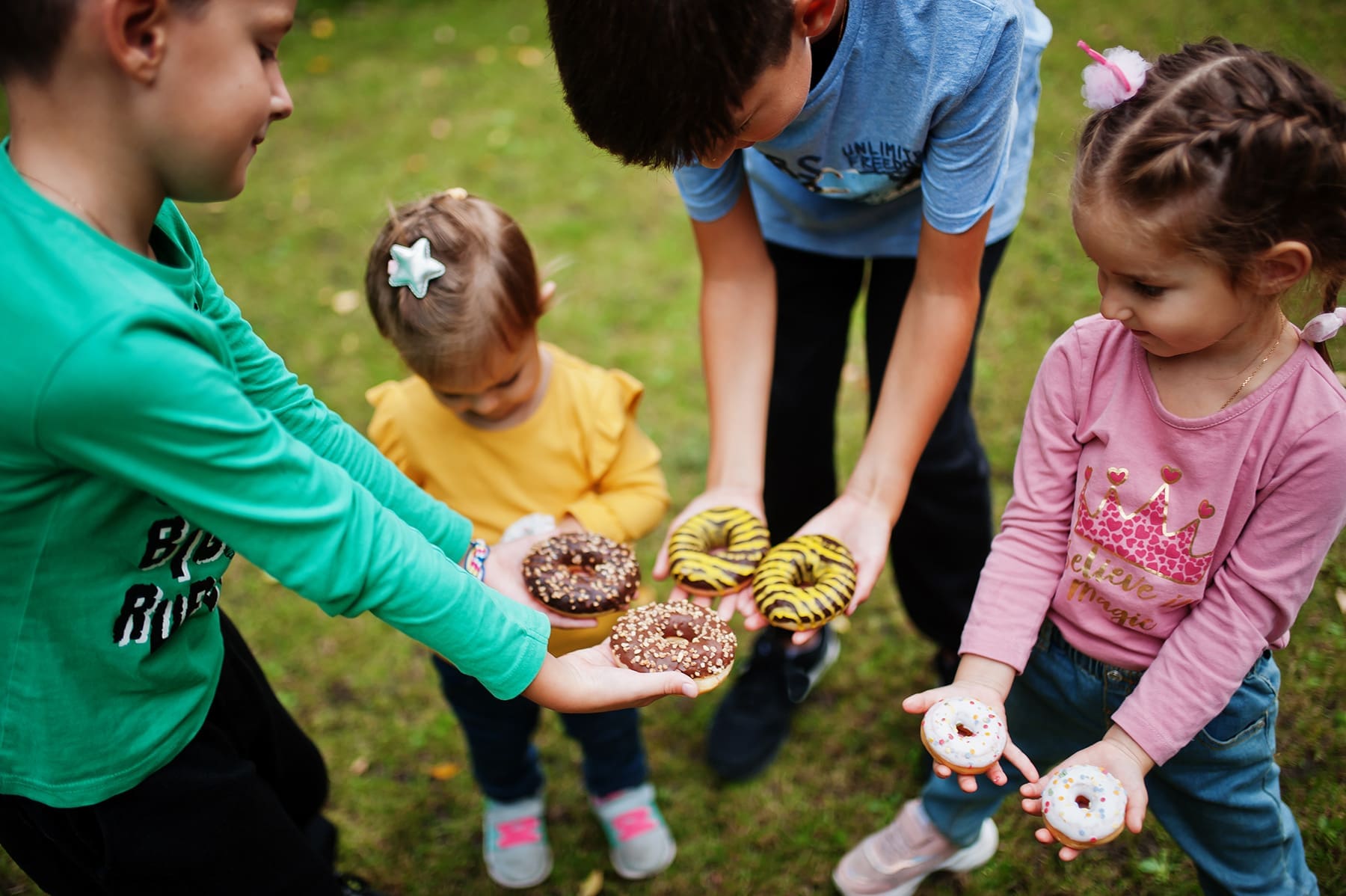Introduction
Sugar is everywhere. From after-school snacks to birthday parties and even those “healthy” cereals in the pantry, it’s a regular part of many kids’ diets. And while enjoying sweets every now and then is completely normal, there’s growing evidence that too much sugar can affect more than just dental health. It can impact your child’s mood, sleep, focus, and overall well-being.
As a parent, you’ve probably wondered: Is sugar really that bad for kids? Could it be affecting my child’s emotions, behavior, or mental health?
In this post, we’ll break down the real effects of sugar on children. You’ll learn how it influences behavior, sleep, attention, and even ADHD symptoms. We’ll also look at the difference between natural and added sugars, and offer practical tips to help reduce sugar without turning meals into a daily battle.
Whether you’ve noticed mood swings after a sugar-heavy party or just want to make healthier choices for your family, understanding how sugar affects kids can help you feel more confident in the decisions you make.
Let’s explore what the science says and how small changes can have a big impact on your child’s health.
How Sugar Affects the Body and Brain
Sugar gives a quick burst of energy, but too much can lead to sharp spikes and crashes in blood sugar. For children, this rollercoaster can affect not just physical energy, but also mood, attention, and how well they manage their emotions.
Here are some common short- and long-term effects of too much sugar:
- Sudden hyperactivity followed by tiredness or crankiness
- Difficulty focusing at school due to energy crashes
- Disrupted sleep, especially when sugar is eaten close to bedtime
- Increased inflammation, which can play a role in long-term health issues
Over time, excess sugar can also interfere with how kids recognize hunger and fullness, slow metabolism, and even contribute to insulin resistance. This doesn’t mean sugar is the enemy. It simply means moderation matters. When you understand how sugar affects children’s bodies and minds, it becomes easier to make choices that support their growth and development.
Can Sugar Affect Mental and Emotional Health?
This is one of the most common questions parents ask. And the short answer is yes, it can.
When kids eat a lot of sugar, it causes a quick release of dopamine, the brain’s “feel good” chemical. But that high is often followed by a crash, which can leave kids feeling irritable, anxious, or emotionally dysregulated.
Here’s what we’re learning from current research:
- Sugar crashes can lead to emotional outbursts and mood swings
- Some kids may feel more anxious or agitated after eating sugary foods
- Frequent sugar intake may make it harder for kids to manage emotions, especially if they already struggle with emotional regulation
While sugar isn’t the only factor affecting mental wellness, it can certainly intensify ups and downs, particularly for younger children who are still learning how to manage big feelings.
The ADHD and Sugar Conversation
If your child has ADHD or shows signs of hyperactivity, you’ve probably heard sugar mentioned in the same breath. So let’s clarify the connection.
Sugar doesn’t cause ADHD, but it can make symptoms more noticeable. Children with ADHD are often more sensitive to diet and may react more strongly to the effects of sugar.
Here’s what to keep in mind:
- Kids with ADHD may be more reactive to sugar-related highs and lows
- Diets high in added sugar can make restlessness, sleep issues, and trouble focusing worse
- Sugary snacks can crowd out the brain-boosting foods kids really need, like fruits, vegetables, proteins, and healthy fats
Many families find that cutting back on sugar, especially before school or bedtime, helps their child feel calmer, focused, and ready to manage their day.
Natural vs Added Sugars: What’s the Difference?
Not all sugars are created equal. Natural sugars are found in foods like fruit, milk, and whole grains. These come with fiber, vitamins, and nutrients that help the body process sugar more slowly and use it more effectively.
Added sugars, on the other hand, are found in processed foods and sweetened drinks. These sugars are often stripped of nutrients and can cause faster spikes in blood sugar.
Here are some easy ways to reduce added sugar:
- Read labels and look for terms like corn syrup, cane sugar, maltose, or dextrose
- Choose plain yogurt and sweeten it naturally with fruit or a drizzle of honey
- Swap juice boxes for whole fruits like apples or berries
- Look for cereals with 6 grams or less of added sugar per serving
Learning the difference between natural and added sugars can help you create a more balanced diet for your child, one that supports both energy and nutrition.
Simple Ways to Cut Back on Sugar at Home
You don’t need to cut sugar out completely. That’s not realistic, and it’s not necessary. The goal is to build habits that make healthy choices feel normal, not restrictive.
Try these parent-approved tips:
- Offer water or milk with meals instead of sugary drinks
- Get kids involved in baking and let them experiment with natural sweeteners like mashed banana or applesauce
- Pack snacks like fruit, whole-grain crackers, and cheese instead of cookies or granola bars
- When kids want something sweet, guide them toward fruit or homemade treats
- Lead by example, kids are more likely to follow your habits than your instructions
These small, consistent choices can help your family build a healthier relationship with food while still enjoying the occasional sweet moment.
Finding Balance in a Sweet-Filled World
As we’ve seen, sugar can influence far more than just your child’s energy levels. From sleep struggles and mood swings to trouble focusing and emotional ups and downs, being aware of how sugar affects your child’s body and brain can help you make more informed choices.
We looked at how sugar impacts physical and emotional health, how it interacts with conditions like ADHD, and what kinds of sugar are better choices for growing kids. Most importantly, we shared practical strategies that help reduce sugar without making food feel like a fight.
At Happy Bun Pediatrics, we’re here to support families who want to understand more about nutrition, behavior, and childhood development. If you’re feeling uncertain about your child’s sugar intake or just want guidance on healthier eating, we’re ready to help.
Schedule a visit with our McKinney office today and let’s create a plan that supports your child’s well-being with confidence and care.


